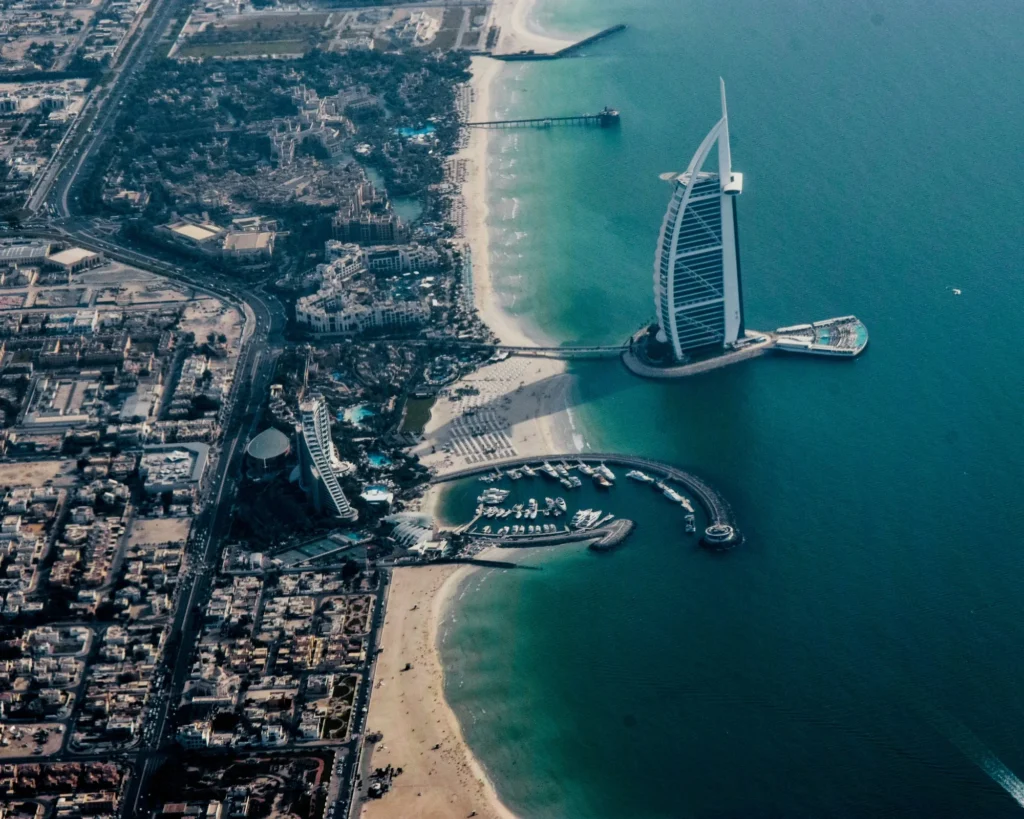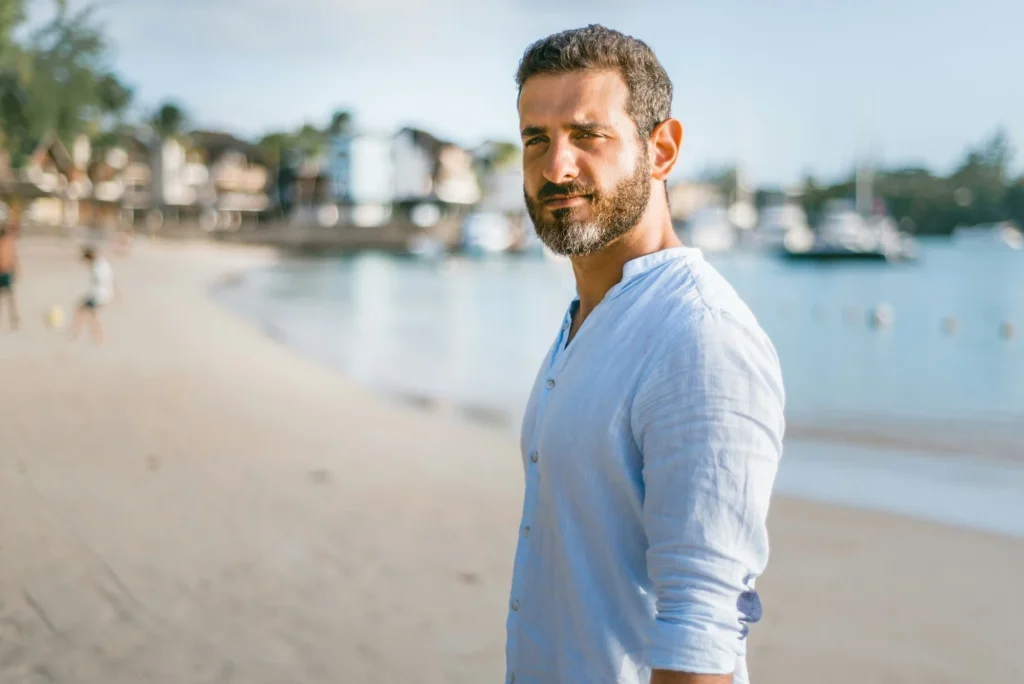Having one passport isn’t enough anymore. With a single citizenship, you’re tied to the whim of a single government.
Billionaire and former Google CEO Eric Schmidt gets it. He’s been vocal about the importance of having multiple citizenships in today’s world, so he got Cypriot citizenship by investment before the program ended a few years ago.
But here’s what most people miss: It’s not just about having a second passport. It’s about building the right passport portfolio that achieves your goals and covers all your bases.
If you’re a high net worth individual, you need a strategic approach to global mobility. We’ve helped countless wealthy individuals secure citizenship across different countries, and I’m going to show you exactly what the ultimate passport portfolio looks like in 2025.

But First, Why Is a Passport Portfolio Important?
The world isn’t getting any more stable:
- Government crackdowns on cryptocurrency and free speech are increasing.
- Political uncertainty and division is ripping apart our social fabric.
- Information sharing between countries is at an all-time high.
- Wealth and exit tax targeting wealthy individuals are normalized.
Here’s what’s really happening: Governments are tightening their grip. And the days of easy global mobility are ending.
But a well-structured passport portfolio might just be the solution.

But what is a passport portfolio?
Well, picture it like this: The reason so many business leaders care about the political, financial, and economic climate in their country is because their whole life is tied to that country. They work there. They earn there. They are educated there. They bank there. They invest there.
Their whole past, present, and future are tied to the success of that nation on the global stage.
But if a wealthy individual obtains a second passport, their options suddenly explode: They can live, study, work, bank, invest, and access healthcare in two nations and any regional unions (example: the European Union) those two countries are members of.
Millionaire migration is at an all-time high. It’s no wonder why when the benefits are so great: Dual citizenship opens the door to investment opportunities in developed and emerging markets while giving you the freedom to work, live, bank, and study anywhere.
And wealthy people don’t just seek out a second passport. They want to build comprehensive citizenship strategies. And they’re right to do so.
So, a well-structured passport portfolio should, in theory, give you unfettered access to:
- Global entrepreneurial opportunities
- Tax optimization options
- Safe havens for your family
- Visa-free access to all the countries you wish
- Investment opportunities in emerging markets
- The ability to work and live in new countries
- Protection against political uncertainty
- Educational opportunities for your children
- Healthcare access across many countries
Now, let’s break it down. What are the components of a powerful passport portfolio?

The Four Pillars of the Perfect Passport Portfolio
1. EU Base
A passport portfolio should be designed to maximize your options to travel visa-free, live, work, study, bank, invest, and get quality healthcare. Citizenship in the EU does not just give you that access in the country of your citizenship. You get those rights in all members of the EU.
So, in summary, citizenship in an EU country means near-full citizenship rights in 27 countries. That optionality is powerful and why we include EU citizenship as a main pillar in the perfect passport portfolio.
But of 27 EU member states, which citizenship should you get and how can you get it? Portugal offers a route no other country can match.

Through the Portuguese golden visa and the Unbound Fund, you can invest in companies in the Web3 space while obtaining residency in the Iberian country. Then, after just five years of maintaining your investment and visa (i.e. visiting the country for seven days a year), you qualify for citizenship and the Portugal passport with visa-free access to more than 180 countries around the world.
Here’s how to do it:
- Invest €500,000 in the Unbound Fund (or lesser amounts if you prefer a donation route)
- Include your entire family in the residency application
- Meet minimal physical presence requirements (just seven days per year)
- Apply to citizenship in five years
Key Factors That Separate the Portugal Golden Visa from Alternatives
What sets Portugal apart is its remarkable stability within the European Union. As one of Europe’s safest countries, it offers world-class healthcare, strong visa-free travel, one of the world’s highest qualities of life, progressive crypto regulations and tax policies, and a tech-friendly ecosystem. Plus, the Mediterranean climate, widespread English usage, and outstanding education system make for an easy transition for global citizens.

2. North American/Latin American Anchor
If you don’t already have some allocation in the Americas depending on your home country, it’s time to diversify there.
With more millionaires and a larger economy than anywhere else – no matter the trend of the West –, North America commands most of the world’s financial and economic attention. But as one of the fastest growing regions of the world, Latin America could be the icing on the cake (or extra passport in passport portfolios).
But these are two large, diverse regions, so let’s break them down.

North American Passports
While a US passport means you’re liable for citizenship-based taxation, Canadian and Mexican citizenship do not. Plus, they offer almost as much visa-free access around the world as the American passport does.
So while you can invest and bank in the United States, you do not necessarily need a US passport, which would open you up to taxes for the rest of your life, especially if you’re a high-net-worth individual.
While many wealthy Americans seek a Plan B and options abroad, having an additional passport in North or South America could be beneficial. The trick is choosing the right program based on various country factors like:
- Processing times
- Minimum investment requirements
- Necessary physical presence
- Tax implications
- Business environment
- Economic and political stability
- Banking infrastructure

Mexico offers easy residency qualifications via real estate purchase or proof of economic solvency and a path to citizenship in just five years. An investor and his partners can open a business in Canada and get Canadian passports in even less than five years.
Central and South America Passports
South America is one of the most friendly regions for fast paths to citizenship and tax regulation. Uruguay, Chile, and Paraguay all have advantageous tax schema and relatively quick residency programs and citizenship options.
As I covered in the X thread above, Uruguay offers new residents an attractive tax scheme, where they can choose a 0% tax on foreign income for 11 years or a flat tax of 7% on global income for life. Known as the “Switzerland of South America,” Uruguay is famous for its stability, low crime rates, and strong banking privacy.
Plus, new residents can pad their passport portfolios by acquiring citizenship in just 3-5 years.
Chile and Panama are similar in the relative size and strength of their economies and business environments. Both offer various investment programs and strong passports, which are notoriously difficult to obtain for foreigners.

Depending on your risk profile and investment outlook, other countries in Central America that may check your proverbial boxes are Costa Rica, Panama, and El Salvador – all territorial tax systems with various residency programs and pathways to become a citizen (the latter even has a direct citizenship by investment program).
If you’re looking for a hideout in the event of World War III or a country with lower cost of living and lack of regulations, Latin America may be a preferable region.
3. Southeast Asian or Middle Eastern Hub

Asia’s rising economic importance makes it a necessary component of any serious passport portfolio. Countries such as popular destinations Malaysia, Singapore, and Hong Kong offer:
- Explosive economic growth
- Strategic business presence in Asia
- Additional visa-free travel options (Singapore has the best passport in the world, says Henley & Partners)
- Investment opportunities in growing markets
- Alternative residences for domicile diversification
- Strong banking systems
- Wealth and financial management centers
The key to your position in the Asian Century (as Ray Dalio calls it) is capturing arbitrage and opportunities in its emerging technology, strong banking systems, and growing financial hubs. These jurisdictions offer not just residence options, but gateways to the world’s most dynamic economic region.
It’s difficult to get a secondary passport in this region. In some countries, dual citizenship is not permitted, meaning you’d have to renounce your original citizenships in order to qualify in their country. Or a passport is deemed a right only for those born in the country. Therefore, the transition from resident to citizen is rare.
But you do have the opportunity to get citizenship by investment in Cambodia, residency then naturalization in the Philippines (which permits dual nationality), or just residency in Singapore, Hong Kong, and Malaysia through various investment programs.

I get it – Because of the lack of citizenship programs, getting passports in Southeast Asia can be difficult. A good substitute for this region in your passport portfolio would be the Middle East. Egypt, Turkey, and Jordan all over citizenship by investment opportunities. Plus, the region is appealing for its generally tax-friendly environments (read: United Arab Emirates and its free zones).
4. The Strategic Wild Card
This is where things get interesting.
Your wild card choice should focus on emerging markets with significant growth potential. I covered this in a video about El Salvador, Portugal, and Argentina recently.
Look for jurisdictions rich in natural resources, developing infrastructure, and rising economic and political influence. The ideal wild card passports should unlock access to untapped markets and benefits for your whole family while requiring little of your time and/or financial resources that other passports in your portfolio can’t provide.
Basically, this is where you take a calculated risk for massive future rewards. Think emerging markets with:
- Natural resources
- Growing economy and wealth
- Investment programs with reasonable minimum investments
- Potential for significant return on citizenship investment
- Future strategic importance
- Net inflow of foreign investment
- Growing visa-free travel
- Developing infrastructure and government
- Improving safety marks
- Rising regional influence
- Untapped real estate market
These are all key factors to becoming the next Dubai, the future Singapore, or the Hong Kong of 50 years from now. Invest there now and your passport portfolio will thank you later.

The Bottom Line
Rising global instability, social division, political strife, and geopolitical conflict – The world is full of risk. Having supplementary passports isn’t just smart: It’s necessary.
The perfect passport portfolio combines:
- A strong European base (namely, Portugal’s golden visa)
- Access to the Americas
- Presence in Southeast Asia or the Middle East
- Strategic wild card
Even just two passports massively expand your global access and mobility, banking, investment, and residential options. They’re not just for filling travel gaps. This is about you and your family’s security and safety.
In uncertain times, that’s a unique advantage high-net-worth individuals can’t afford to ignore.

Build the EU Base of Your Passport Portfolio
Ready to start building your passport portfolio? Let’s talk about how the Unbound Fund can be your gateway to EU citizenship. Because in 2025, the question isn’t whether you need multiple citizenships – it’s how quickly you can build your portfolio.
The best time to build your passport portfolio was yesterday. The second best time is now.
Don’t wait until you need options to start creating them. Start your path to become a global citizen now.




